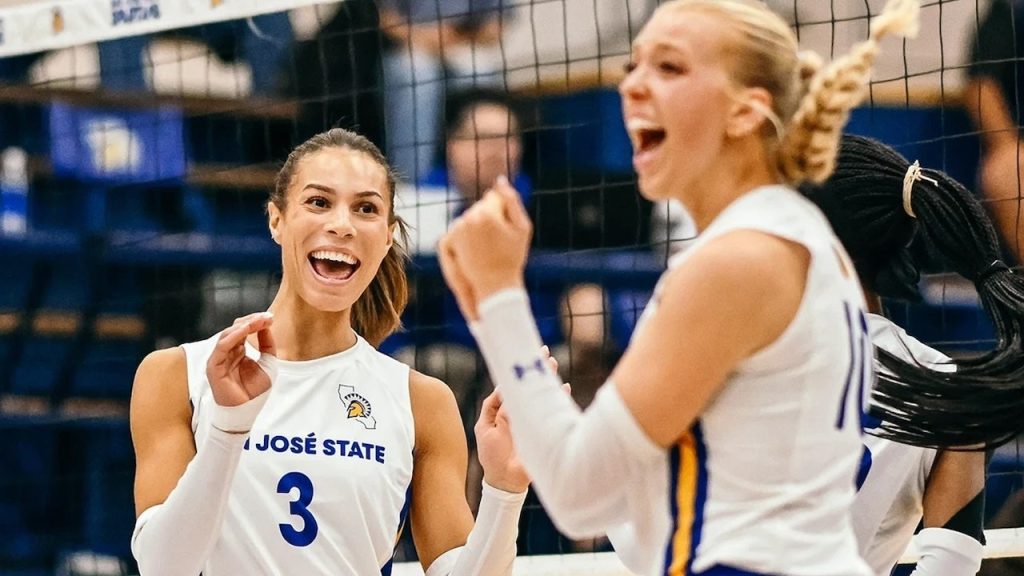The 2024 women’s college volleyball season was marred by controversy surrounding the participation of transgender athlete Blaire Fleming on the San Jose State University (SJSU) team. Fleming’s inclusion sparked a national debate about fairness and inclusion in women’s sports, culminating in a lawsuit against SJSU and the Mountain West Conference by multiple female volleyball players. These players allege that the university withheld Fleming’s biological sex, leading to emotional distress, financial impact due to lost scholarship opportunities, and a compromised competitive landscape. The controversy gained momentum, with several opposing teams forfeiting matches against SJSU in protest. This ultimately led to a contentious legislative hearing in Idaho, where players, parents, and advocates shared their experiences and concerns.
The Idaho hearing, convened to discuss the Fairness in Women’s Sports Act, provided a platform for those affected by the Fleming situation to voice their perspectives. April Cheney, a parent of a Mountain West Conference volleyball player, condemned the NCAA, the conference, and university administrators for their handling of the situation. She criticized their failure to protect women’s sports and highlighted the negative impacts on her daughter’s season, including forfeited matches, distorted records, and a devalued conference championship. Cheney’s testimony underscored the broader frustration and disappointment felt by many within the women’s sports community.
Riley Gaines, a former NCAA swimmer and outspoken advocate for women’s sports, testified about the alleged emotional blackmail experienced by the SJSU players. Gaines, who is involved in a separate lawsuit against the NCAA over transgender athlete participation, described how the players were pressured into silence and made to feel as though they were the problem for objecting to Fleming’s inclusion. She emphasized the fear and intimidation these young women faced, highlighting the precarious position they were placed in by their university and the broader athletic system. Gaines’s testimony painted a picture of a system that silenced dissenting voices and prioritized inclusion over the concerns of female athletes.
Marshi Smith, co-founder of the Independent Council on Women’s Sports, corroborated Gaines’s claims, stating that the players who joined the lawsuit feared retaliation from their university if they spoke out. She described a climate of fear and intimidation, where athletes worried about losing scholarships or being removed from their teams. Smith further alleged that SJSU administrators actively discouraged the players from sharing their experiences, claiming that it was Fleming’s story to tell, not theirs. This alleged suppression of player voices further fueled the controversy and highlighted the power dynamics at play.
The situation at SJSU is not isolated. Smith also alleged that players at the University of Nevada, Reno (UNR), were threatened with legal action if they refused to compete against SJSU. UNR initially insisted on playing the match despite player concerns. However, after the players went public with their grievances, the match was ultimately canceled due to an insufficient number of players willing to participate. This incident underscores the widespread tension and uncertainty surrounding transgender athlete participation in women’s sports and the pressure placed on athletes and universities to navigate this complex issue.
Beyond the legal battles and forfeited matches, the Fleming controversy left a lasting impact on the players directly involved. Louisiana Tech, SJSU’s first opponent of the season, unknowingly played against Fleming, highlighting the lack of transparency surrounding the situation. This lack of information deprived opposing teams of the opportunity to make informed decisions about their participation. Former SJSU co-captain Brooke Slusser, a lead plaintiff in the lawsuit, described the season as “traumatic.” Her experience, along with that of numerous other players, underscores the profound emotional toll this controversy took on the athletes. The mass exodus of players from the SJSU volleyball program further illustrates the lasting damage. The controversy not only disrupted the 2024 season but also casts a long shadow over the future of women’s volleyball at SJSU.

